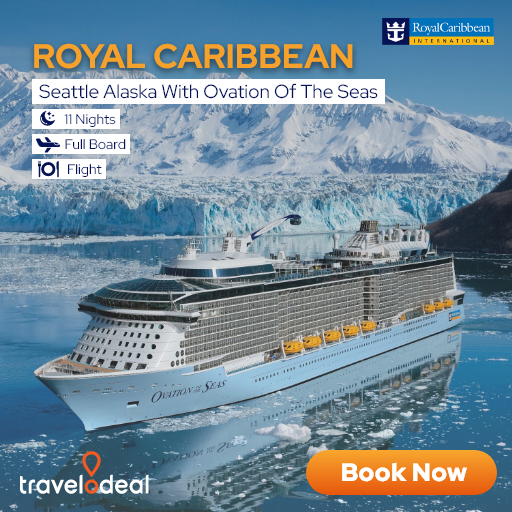The History of Nile River Cruise
30 December 2023
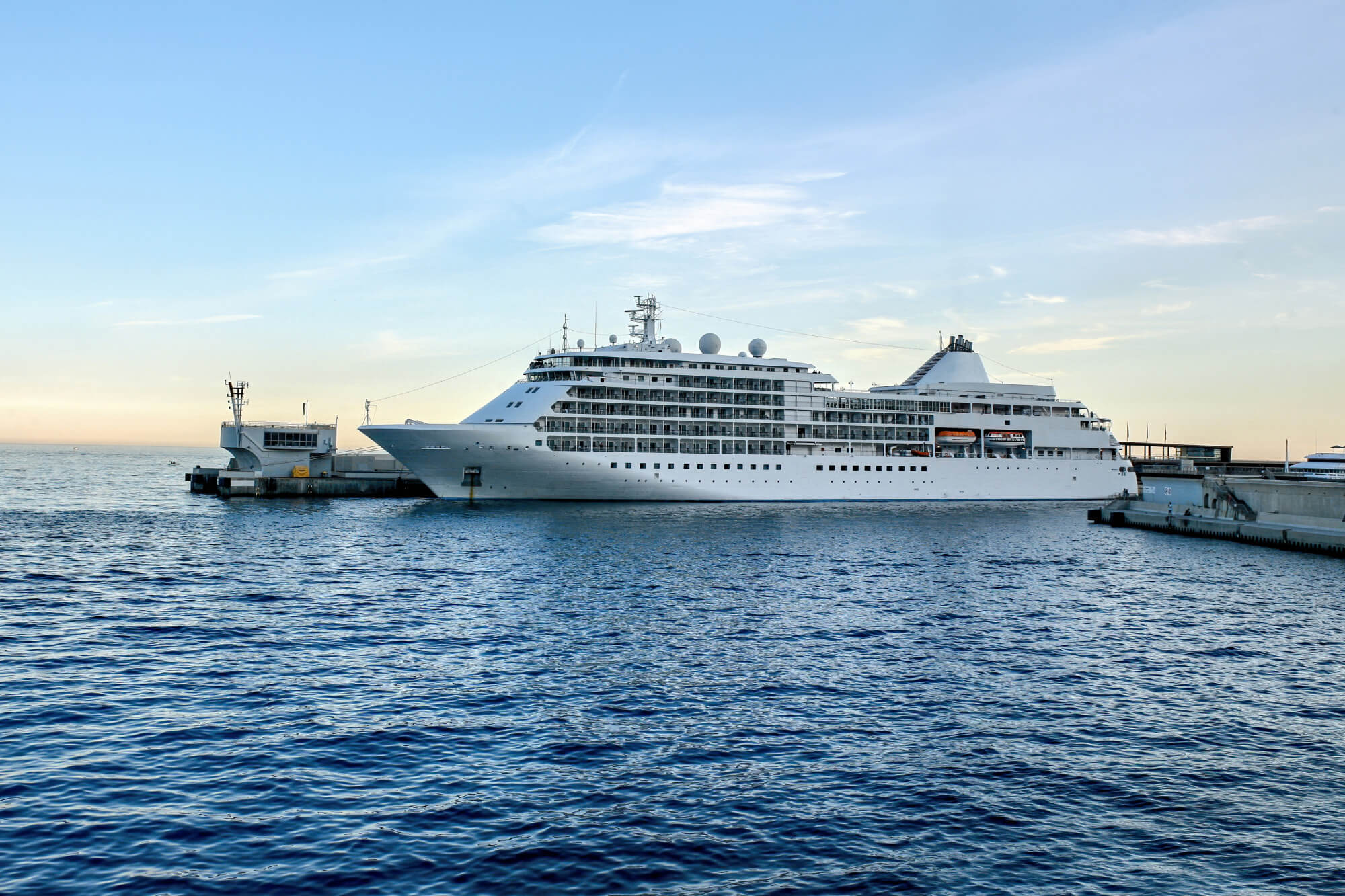
The Nile River is a majestic waterway that has been the lifeblood of Egypt for millennia. The History of Nile Cruise is inextricably linked to the river’s rich and storied past. A vital resource for historical and contemporary societies, the Nile River continues to inspire and captivate those who embark on a journey along its shores.
The Nile River
This iconic river, spanning over 4,000 miles across eleven countries, has witnessed the rise and fall of numerous civilisations. Each has left behind a lasting legacy in the form of magnificent temples and tombs along its banks.
Shaping the Civilisation
The Nile played a crucial role in shaping the civilisation of Egypt. Its annual flooding brought rich silt and nourished the land, allowing ancient Egyptians to cultivate crops and thrive along its banks. The river also acted as a crucial transport route, linking various regions and enabling trade.
As we explore the history of the Nile River, it becomes clear that its importance goes far beyond providing sustenance and transportation. This majestic river holds immense cultural and religious significance for the people living along its banks.
Myths
Apart from being a lifeline for the ancient Egyptians, the Nile River was also considered a God. In Egyptian Mythology, Hapi, the God of the Nile, was believed to control the river’s annual flooding. As this flooding brought fertility to the land and ensured a bountiful harvest, it was considered a divine gift.
Luxor and Karnak temples, located on the east bank of the Nile in modern-day Egypt, are prime examples of the grandeur and splendour that once adorned the river’s shores.
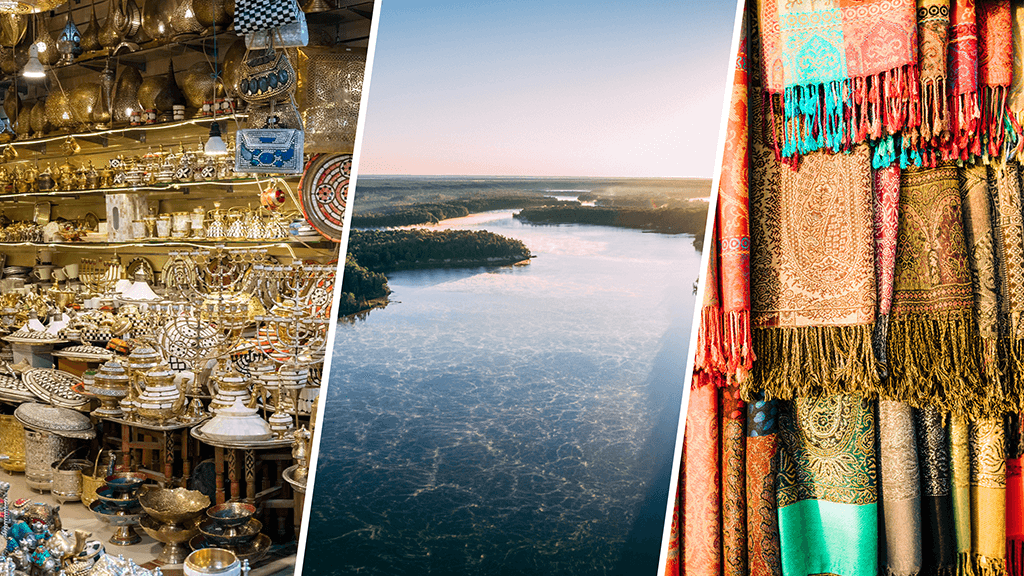
Source of Life and Inspiration
From the ancient Egyptians, who built temples and tombs of unparalleled grandeur, to the modern-day communities that rely on the river for irrigation and sustenance, the Nile has been a constant presence in the lives of those who live along its banks.
Steeped in the rich history of the Nile River Cruise, you’ll have the opportunity to experience the daily life of the people who call this remarkable river home. From farmers cultivating crops to fishermen casting their nets, the Nile River is a bustling hub where tradition and modernity coexist.
A diverse array of plants and animals thrive in the river’s ecosystem. From the majestic temples to the rhythms of everyday life, a Nile River Cruise grants a privileged glimpse into the country’s rich cultural heritage, ensuring an unforgettable experience.
Its waters have shaped civilisations, inspired myths, and continue to be a source of life and inspiration for all who encounter its majestic flow.
The History of Nile Cruises – The Origins
The history of Nile River Cruise stretches back to the 19th century when European fascination with Egypt and its ancient marvels began to bloom. As the British Empire extended its influence in Egypt, European travellers sought new ways to explore the country’s archaeological sites and natural beauty. The idea of cruising along the Nile emerged as a unique and luxurious travel experience.
Initially, these Nile Cruises were only for wealthy aristocrats and dignitaries who embarked on majestic Steamships and Dahabiyas – traditional Egyptian sailboats. These cruises offered a blend of adventure, comfort, and cultural immersion, with passengers journeying from Cairo to Luxor, Aswan, and beyond.
As the popularity of Nile River Cruises grew, so did the demand for more affordable options. The evolution of the cruise industry in Egypt led to the development of smaller, more affordable vessels that could accommodate a broader range of travellers. While these newer ships may not have been as luxurious as their predecessors, they still offered a comfortable and enjoyable experience for those eager to discover the country’s many wonders.
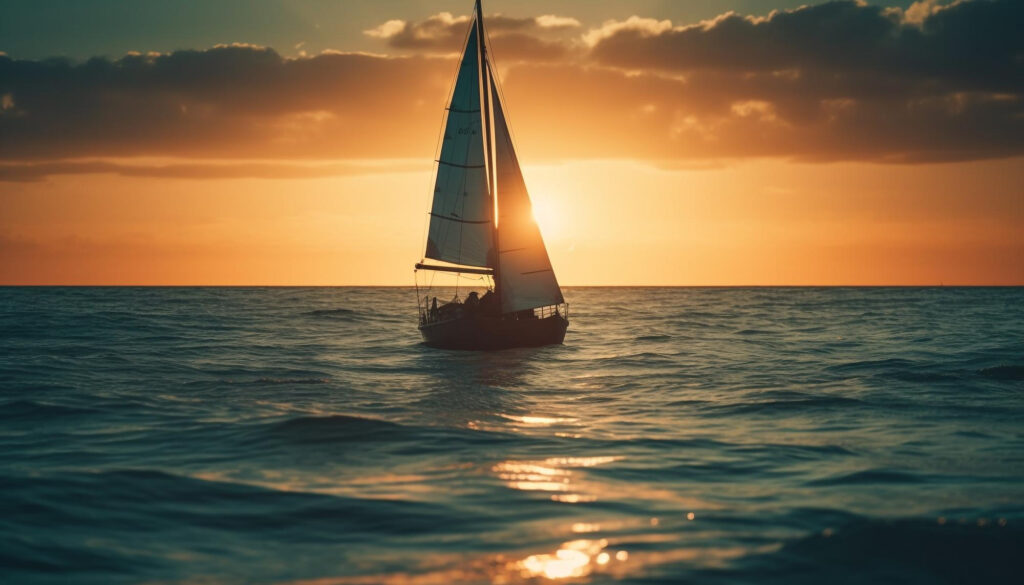
Pharaoh And Nile Boats
In ancient Egypt, the Nile River and its boats held immense significance. The Pharaohs, regarded as divine rulers, used boats for transportation and as a symbol of their power and authority. These regal vessels were beautifully adorned and used for ceremonial processions and religious rituals.
The Pharaohs’ grand riverine processions showcased their wealth and dominion, with boats filled with attendants, musicians, and offerings to the gods. These mesmerising displays celebrated the Nile’s life-giving properties and symbolised the Pharaoh’s vital connection to the river and the gods.
Today, fragments of these ancient vessels can still be found in museums and archaeological sites, offering a glimpse into the lavish and majesty of ancient Egyptian culture.
Transportation and Nile Boats
In addition to their ceremonial use, the Nile boats played a fundamental role in transportation during ancient times. The river served as a significant trade route, connecting different regions of Egypt and facilitating the movement of goods and resources.
From small fishing boats to large cargos, the Nile accommodated a variety of watercraft. These boats transported vital commodities such as grains, textiles, and building materials, supporting the economy and sustaining communities along the river’s banks.
Also, boats were essential for communication and military purposes. The Pharaohs and their armies utilised Nile boats to mobilise troops, launch expeditions, and maintain a network of control over the territories of ancient Egypt.
Nile River Excursions Today
Today, building upon the rich history of the Nile River Cruise, the cruises along the Nile have gained immense popularity among travellers from diverse backgrounds. From history buffs to nature enthusiasts and adventure-seekers, cruises cater to various preferences and budgets.
Modern Nile River Cruises offers many amenities and activities to ensure an unforgettable experience. From onboard swimming pools and spas to guided tours of ancient temples and tombs, there is no shortage of things to see and do during your cruise.
Why Nile River Cruise?
A Nile River Cruise is not just a typical leisure break but a profoundly enriching experience that allows you to delve into Egypt’s captivating history, culture, and natural wonders. Here are some compelling reasons why you should consider embarking on this unforgettable journey:
Historical Marvels
Explore ancient temples, tombs, and archaeological sites that showcase the grandeur of Egypt’s past.
Natural Splendour
Travel through breathtaking landscapes and witness the ever-changing scenery along the Nile River.
Cultural Immersion
Interact with local communities, visit traditional markets, and witness the vibrant tapestry of Egyptian life.
Luxurious Comfort
Enjoy the amenities and personalised service modern Nile River Cruises offers.
Unforgettable Memories
Create lasting memories as you sail along the world’s most iconic river, surrounded by history and enchantment.
Effects on the Tourism and Economy of Egypt
The growing appeal of Nile River Cruises has profoundly impacted Egypt’s tourism sector and economy.
Economic Boost
It has drawn in diverse travellers from across the globe eager to discover the country’s ancient historical landmarks, including temples, tombs, and archaeological sites.
Embarking on a Nile River Cruise is like stepping back in time, as travellers are transported along the same waters that have cradled the age-old history of Nile Cruise, witnessing the rise and fall of ancient civilisations.
Restoration of Historical Treasures
Besides contributing to the local economy, tourists also support preserving and restoring Egypt’s historical treasures by embarking on the Nile River Cruise. Revenue generated from tourism helps fund archaeological research, conservation projects, and the maintenance of heritage sites along the Nile.
Imagine the painstaking work that goes into preserving these ancient wonders!
From the delicate restoration of crumbling statues to the meticulous documentation of archaeological finds, every effort to safeguard Egypt’s rich history for future generations is made. The funds generated from Nile River Cruises play a crucial role in these preservation efforts, allowing experts to continue their work and protect the country’s cultural heritage.
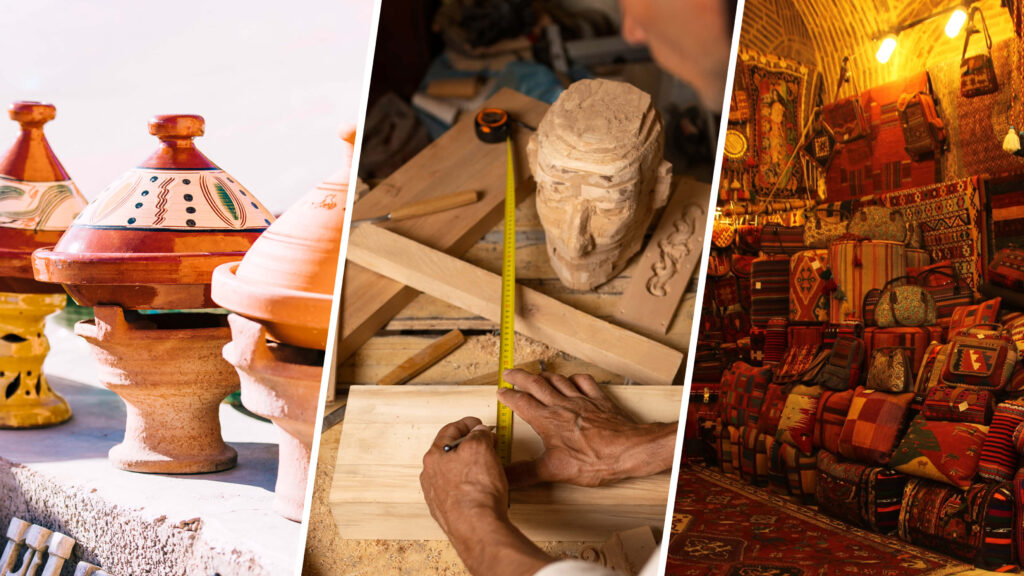
Creating Employment Opportunities
These cruises generate jobs for captains, crew members, tour guides, and artisans. They stimulate economic growth along the river’s route, particularly in towns and cities that rely on tourism.
Picture the bustling riverbanks, where vendors sell traditional crafts and souvenirs to eager tourists!
The artisans, skilled in the ancient arts of weaving, pottery, and jewellery, showcase their talents and make a living from their craft. The ripple effect of tourism spreads beyond the river, as hotels, restaurants, and transportation services also benefit from the influx of visitors.
Appreciation of the Cultural Heritage
It is not just the economy that benefits from the Nile River Cruise but also the local communities. As travellers engage with the people of Egypt, they develop a more nuanced appreciation for its cultural heritage. Through immersive experiences, such as sampling local cuisines and listening to traditional music, they witness the warmth and generosity of the Egyptian people.
The Nile River Cruise plays a significant role in Egypt’s tourism industry, offering travellers a unique and unforgettable experience. The Nile, the lifeblood of Egypt, continues to captivate and inspire those who embark on this journey, promising discoveries and wonders at every turn.
Different Types Of Nile River Cruises
Nile River Cruise has vast options available to suit every traveller’s preferences. The most popular are:
Luxor and Aswan Nile Cruises
A Luxor and Aswan Nile Cruise is a common choice for travellers seeking a comprehensive exploration of Egypt’s ancient sites. These cruises typically span from Luxor, the historical city of Thebes, to Aswan, known for its majestic temples and scenic beauty. Travellers can explore renowned historical sites, including the Valley of the Kings, Karnak Temple Complex, and Philae Temple.
Lake Nasser Cruises
A Lake Nasser Cruise might be perfect for those seeking a more off-beat path experience. Lake Nasser, formed by the construction of the Aswan High Dam, stretches across the Sudanese-Egyptian border. Cruising on this vast lake allows you to explore lesser-known ancient treasures, such as Abu Simbel temples and the Temple of Amada, in a serene and secluded setting.
Dahabiya Nile Cruises
Dahabiya Nile Cruises offers a charming and intimate experience aboard traditional Egyptian sailboats. These smaller vessels allow for a more personalised journey, with fewer passengers and a relaxed pace. Dahabiya Cruises often follow the Luxor-Aswan route, providing a delightful blend of comfort, elegance, and cultural immersion.
Nile Steamer Cruises
Nile steamer Cruises harken back to the golden history of the Nile River Cruise, paying homage to the elegant river travel of the past. These cruises recreate the nostalgic ambience of the late 19th and early 20th centuries when steamships ruled the Nile. Passengers can step back in time while enjoying modern comforts, savouring the timeless charm of this bygone era.
Long Nile Cruises
For those with extra time to spare, Long Nile Cruises provides extended voyages along the river, spanning several weeks. These cruises comprehensively explore Egypt’s historical and natural wonders, allowing travellers to delve deep into the country’s captivating landscapes and cultural heritage.
Choosing The Right Nile River Cruise
With many options, choosing the right Nile River Cruise can be an exciting yet challenging task. Here are a few considerations to help you make an informed decision:
Itinerary
Consider the places you want to visit and ensure the cruise covers those destinations.
Vessel Size
Decide whether you prefer a big cruise ship with more amenities or a smaller vessel for an intimate experience.
Budget
Determine your budget and select a cruise that aligns with your financial comfort.
Duration
Assess the duration of the cruise and ensure it fits your available travel time.
Cruise Line Reputation
Research the reputation and reviews of different cruise lines to ensure a quality experience.
A Nile River Cruise is an extraordinary experience that takes you on a thrilling journey through the ages, offering a unique glimpse into the timeless wonders of ancient Egypt. Along the banks of the majestic Nile River, you can embark on either a brief Luxor-Aswan Cruise or a longer journey of Lake Nasser. Both offer a wealth of historical, cultural, and natural wonders.
Immerse yourself in the rich history of Nile Cruise as you journey past ancient temples, vibrant villages, and breathtaking landscapes, creating memories that will last a lifetime. So, set sail and embark on an unforgettable voyage of discovery with TraveloDeal!
Frequently Asked Questions (FAQs)
When is the best time to take a Nile River Cruise?
The best time for a Nile River Cruise is during the cooler seasons, October to April, when the weather conditions are more favourable for an enjoyable and engaging exploration of the region.
Is it safe to take a Nile River Cruise?
Yes, Nile River Cruises are generally safe for tourists. Tourists are encouraged to heed travel advisories and take appropriate measures to ensure safety.
What should I pack for a Nile River Cruise?
Pack lightweight, breathable clothing, comfortable walking shoes, sunscreen, a hat, and insect repellent. Remember to bring your camera to capture the breathtaking sights along the journey.
What is the average duration of a Nile River Cruise?
Most Nile River cruises range from three to seven nights, providing ample time to explore the key attractions along the river.
Do I need a visa to visit Egypt for a Nile River Cruise?
Indeed, most travellers need a visa to enter Egypt. Before starting your trip, you should check the specific visa requirements and obtain the necessary documents.


